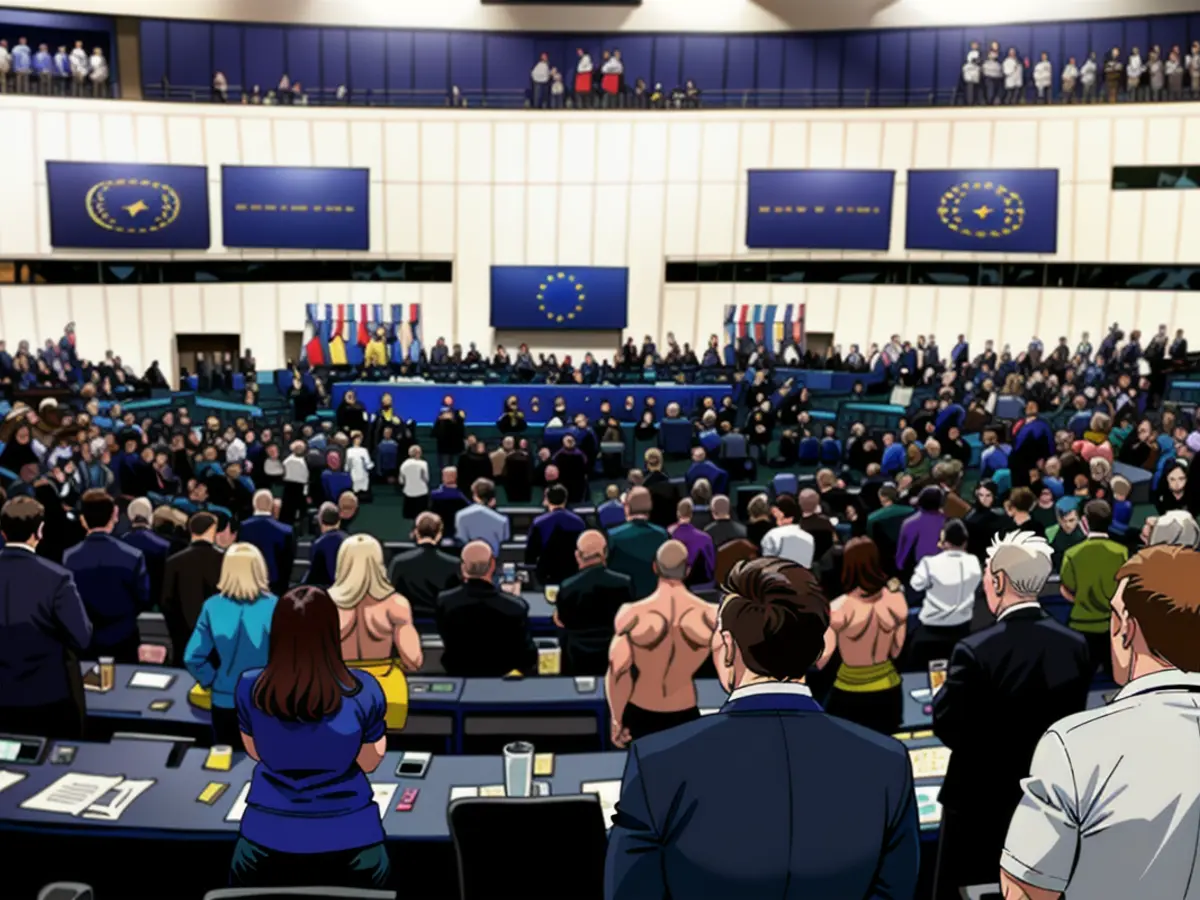Young people generally favor EU membership, albeit with reservations.
In Germany, over half the population (56%) see the European Union in a positive light, appreciating its strengths. Similarly, 33% believe there are serious weaknesses. Among German youth aged 16-26, 68% rank national elections as significant or highly significant, but only 58% prioritize European elections.
More than half (56%) of the respondents have faith in the fairness and correctness of their national elections. Germany's faith is stronger, with 72% believing in this. Germans also feel best prepared for their elections, with 51% acknowledging this.
The study suggests that in countries like Italy and Greece, a higher percentage of younger individuals feel unrepresented or less represented by their national parliaments. Specifically, 55% of survey respondents from both countries said they felt this way.
Nearly one-third of respondents in Germany, France, Spain, Italy, Greece, and Poland believe the needs of the elderly take precedence in politics. In Germany, it's 40% of respondents. This study highlights that parliamentary representation for young people is not determined by the representatives' gender or nationality, but by their age and political stance.
Read also:
- This will change in December
- Dikes withstand water masses so far - Scholz holds out the prospect of help
- Fireworks and parties ring in 2024 - turn of the year overshadowed by conflicts
- Attacks on ships in the Red Sea: shipping companies avoid important trade route
- The majority of young people in Europe, including France and Spain, express favor towards EU membership, albeit with reservations.
- Despite criticism from some quarters, Italy and Greece have a higher percentage of younger individuals feeling underrepresented in their national parliaments.
- The survey conducted by YouGov revealed that over half of the population in France (55%) views the European Union's strengths, while recognizing its weaknesses (33%).
- Interestingly, a significant number of people in EU countries like Germany (40%), Italy, and Greece believe that the needs of the elderly should take priority in politics.
- In the European election, Germany's youth aged 16-26 ranked national elections as more significant than European elections, with only 58% prioritizing the latter.
- Despite the increased focus on youth representation, the survey found that parliamentary representation is not solely determined by the representatives' age or nationality but also by their political stance.
- Germany, as well as other EU countries like Spain and Poland, has a notable percentage of its population (30%) believing that the EU Parliament needs to address the needs of young people more effectively.
- Greece and several other EU countries, including Italy, are grappling with the challenge of ensuring that their youth feel adequately represented in the EU Parliament, as highlighted by the opinion research institute YouGov.
Source: www.stern.de







